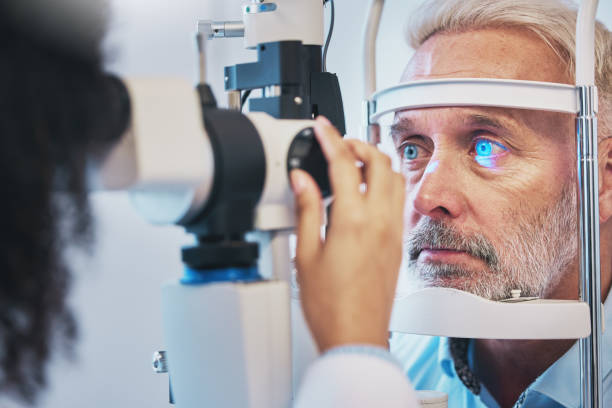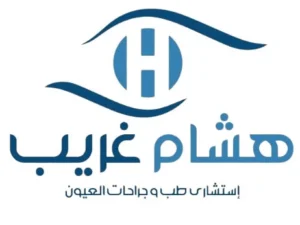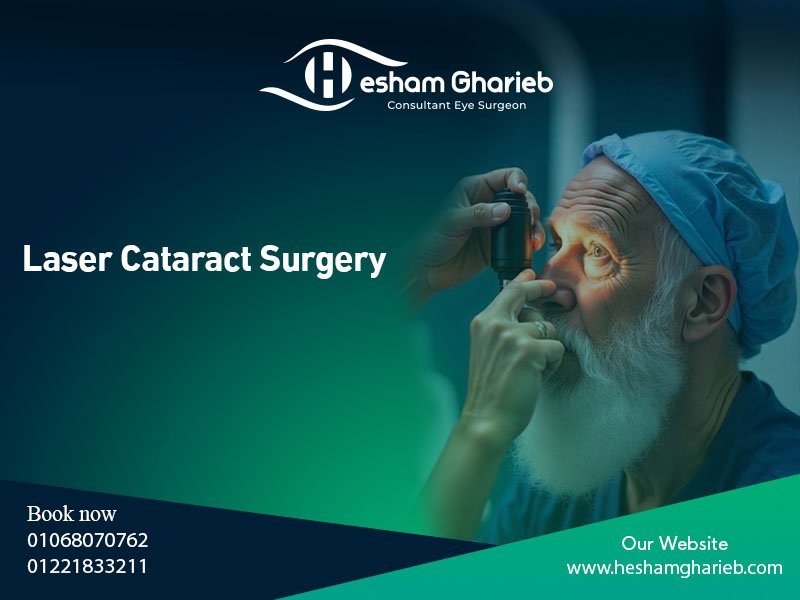Laser Cataract Surgery: A Modern Solution for Clear Vision
Are you struggling with blurry vision, especially when driving at night or reading? Do you find that your vision is getting foggy or cloudy over time? If so, you may be experiencing symptoms of cataracts a common condition that affects millions of people worldwide, especially as they age.
The good news is that cataract treatment has come a long way, and laser cataract surgery offers a safer, more precise, and less invasive option than ever before.
In this article, we’ll take you through everything you need to know about laser cataract surgery in Egypt, its benefits, and how it compares to traditional surgical methods. If you’re looking for an effective and painless solution to cataracts, keep reading to learn how modern advancements in ophthalmology can restore your vision and improve your quality of life.
 What Are Cataracts and How Do They Affect Vision?
What Are Cataracts and How Do They Affect Vision?
A cataract occurs when the natural lens inside the eye becomes cloudy or opaque, which impairs your vision. This typically happens as part of the aging process, but cataracts can also be caused by factors like trauma, medications, diabetes, or genetic conditions.
The cloudy lens blocks light from entering the eye, resulting in blurry or distorted vision. Common symptoms of cataracts include:
- Blurred or cloudy vision.
- Difficulty seeing at night or in low-light conditions.
- Sensitivity to light or glare.
- Faded or yellowed colors.
- Frequent changes in glasses prescription.
While cataracts usually develop gradually, they can worsen over time, making it difficult to perform daily activities. The only effective treatment for cataracts is surgery, which involves removing the cloudy lens and replacing it with an artificial lens.
Diagnosis: When to Seek Help
If you’re experiencing any of the symptoms mentioned above, it’s essential to schedule an eye exam with a qualified ophthalmologist. Early diagnosis and treatment are crucial in preventing further vision impairment.
Dr. Hesham Gharib, one of the best cataract doctors in Cairo, is highly experienced in diagnosing and treating cataracts. During the exam, your doctor will assess your vision, check for cataracts, and discuss the best treatment options available for you.
Traditional vs. Laser Cataract Surgery: Key Differences
For many years, phacoemulsification (commonly known as phaco surgery) was the standard method for cataract removal. In this procedure, the cloudy lens is broken up into tiny pieces using ultrasound energy and then removed. While phaco surgery is effective, it involves the use of mechanical tools and may not be as precise as laser cataract surgery.
Advantages of Laser Cataract Surgery
Laser cataract surgery, also known as femtosecond laser cataract surgery, utilizes advanced laser technology to perform precise incisions in the cornea and break up the cloudy lens. Some key advantages of laser surgery include:
- Precision: The laser allows for more accurate incisions and lens fragmentation, leading to improved outcomes.
- Reduced risk: Because the laser is so precise, the risk of complications, such as infection or damage to the surrounding tissue, is lower.
- Faster recovery: Laser cataract surgery typically requires a shorter recovery time than traditional methods.
- No stitches: Laser cataract surgery is often performed without the need for stitches, reducing discomfort and promoting faster healing.
In contrast, traditional phaco surgery may require sutures and has a slightly longer recovery period. While both procedures are safe and effective, laser cataract surgery offers several advantages in terms of precision, speed, and recovery time.
Step-by-Step Overview of the Laser Surgery Procedure

Laser cataract surgery is typically a quick and minimally invasive procedure that can be performed on an outpatient basis. Here’s an overview of what you can expect during the surgery:
- Preparation: Before the surgery, your eye will be numbed with local anesthetic drops. You’ll be awake during the procedure, but you won’t feel any pain.
- Laser Treatment: The surgeon will use the femtosecond laser to create precise incisions in the cornea and break up the cloudy lens. This step is highly accurate, allowing for a smooth and safe surgery.
- Lens Removal: The cloudy lens fragments are gently suctioned out of the eye.
- Lens Implant: Once the cataract is removed, the surgeon will implant a new, artificial intraocular lens (IOL) to restore clear vision. There are different types of IOLs available, depending on your visual needs.
- Finishing Touches: The incisions are self-sealing, so there is no need for stitches. The surgeon may apply a protective shield over your eye after the procedure.
The entire procedure typically takes about 15 to 30 minutes and is performed on an outpatient basis, meaning you can go home the same day.
Who Is a Good Candidate for Laser Cataract Removal?
Laser cataract surgery is suitable for most people with cataracts, especially those who are generally healthy and have no other eye conditions like severe glaucoma or retinal disease. The procedure is especially beneficial for individuals who:
- Are looking for painless cataract removal with minimal discomfort.
- Want a quick recovery and no stitches.
- Need advanced cataract removal for better vision outcomes.
- Are elderly and seeking a safe and effective solution for cataracts.
However, not everyone may be a good candidate for laser surgery. A thorough eye exam and consultation with a skilled cataract surgeon, like Dr. Hesham Gharib, will help determine whether laser cataract surgery is the right choice for you.
How Much Does Cataract Surgery Cost in Egypt?
The cost of cataract surgery in Egypt can vary depending on factors such as the type of procedure (laser vs. traditional), the surgeon’s experience, and the clinic’s location. On average, laser cataract surgery in Egypt can cost between 10,000 to 30,000 EGP per eye.
It’s important to choose a reputable clinic for cataract surgery to ensure high-quality care. Dr. Hesham Gharib’s clinic offers cutting-edge laser cataract surgery options and will provide a detailed breakdown of costs during your consultation.
FAQs About Results, Safety, and Recovery
- Is laser cataract surgery safe?
Yes, laser cataract surgery is very safe when performed by an experienced surgeon. It has a low risk of complications and offers faster recovery compared to traditional methods. - What can I expect after cataract surgery?
Most patients experience improved vision within a few days, with full recovery taking about a month. You’ll be advised to avoid strenuous activities for a few weeks and wear protective eyewear during the recovery period. - Will I need glasses after cataract surgery?
Depending on the type of lens implant you receive, you may still need glasses for reading or close-up tasks. However, many patients experience significant improvement in their distance vision without glasses. - Does cataract come back after surgery?
Once the cataract is removed, it does not return. However, in some cases, the capsule holding the lens may become cloudy over time, a condition known as secondary cataract. This can be treated with a simple laser procedure.
If you’re experiencing cataract symptoms and seeking a modern, effective treatment option, laser cataract surgery offers many benefits, including precision, minimal discomfort, and fast recovery. It’s a safe and reliable procedure that can restore your vision and improve your quality of life.
If you’re in Cairo, Dr. Hesham Gharib, one of the best cataract doctors in Cairo, is ready to help you regain your clear vision. Don’t wait until your vision deteriorates further—schedule a consultation today to learn more about laser cataract surgery and the lens implants after cataract options available to you.
Contact us now to book your appointment and take the first step towards a clearer tomorrow.

